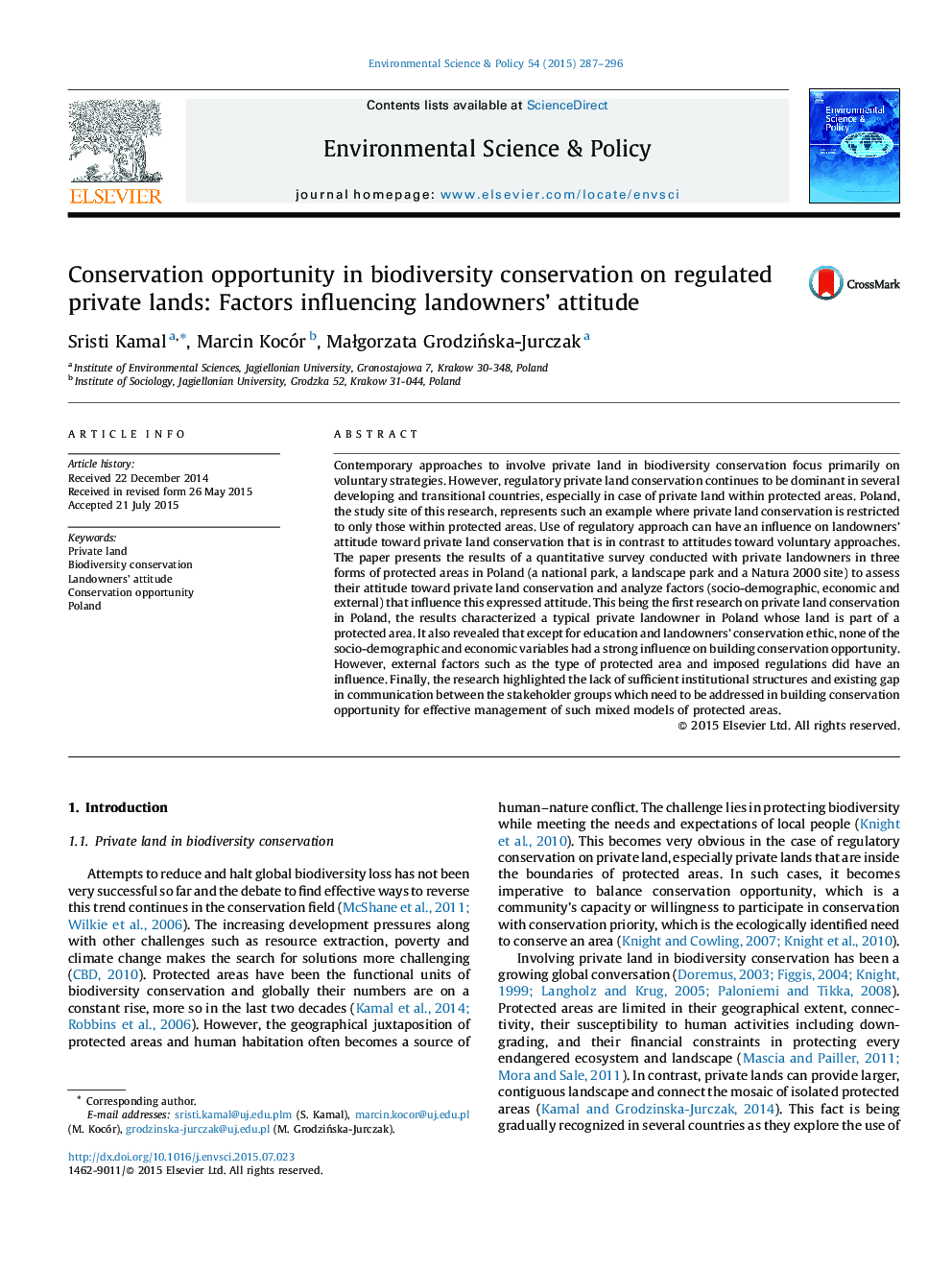| Article ID | Journal | Published Year | Pages | File Type |
|---|---|---|---|---|
| 7467310 | Environmental Science & Policy | 2015 | 10 Pages |
Abstract
Contemporary approaches to involve private land in biodiversity conservation focus primarily on voluntary strategies. However, regulatory private land conservation continues to be dominant in several developing and transitional countries, especially in case of private land within protected areas. Poland, the study site of this research, represents such an example where private land conservation is restricted to only those within protected areas. Use of regulatory approach can have an influence on landowners' attitude toward private land conservation that is in contrast to attitudes toward voluntary approaches. The paper presents the results of a quantitative survey conducted with private landowners in three forms of protected areas in Poland (a national park, a landscape park and a Natura 2000 site) to assess their attitude toward private land conservation and analyze factors (socio-demographic, economic and external) that influence this expressed attitude. This being the first research on private land conservation in Poland, the results characterized a typical private landowner in Poland whose land is part of a protected area. It also revealed that except for education and landowners' conservation ethic, none of the socio-demographic and economic variables had a strong influence on building conservation opportunity. However, external factors such as the type of protected area and imposed regulations did have an influence. Finally, the research highlighted the lack of sufficient institutional structures and existing gap in communication between the stakeholder groups which need to be addressed in building conservation opportunity for effective management of such mixed models of protected areas.
Related Topics
Physical Sciences and Engineering
Energy
Renewable Energy, Sustainability and the Environment
Authors
Sristi Kamal, Marcin Kocór, MaÅgorzata GrodziÅska-Jurczak,
